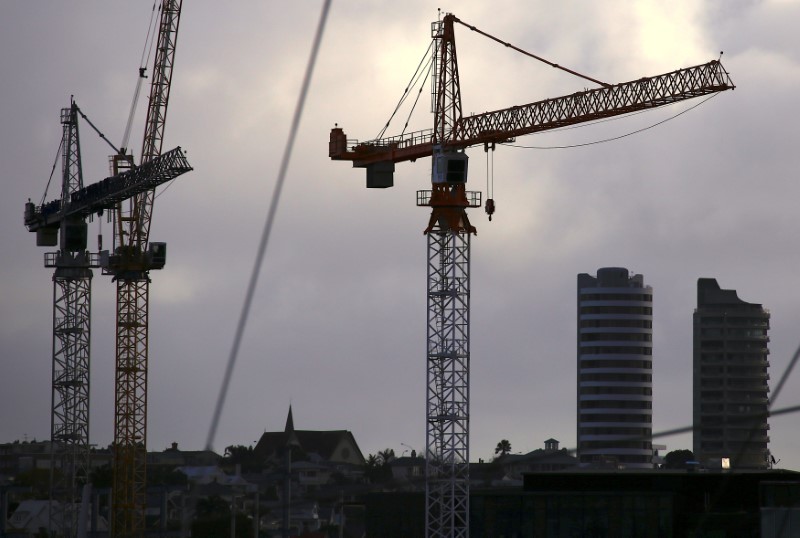* NZ business confidence at eight-year low in Nov - ANZ survey
* Jitters over new government likely to blame - economists
* NZ dlr slips to one-week low (Re-casts, updates market reaction, adds economist comment)
WELLINGTON, Nov 30 (Reuters) - Backlash towards the incoming Labour government caused New Zealand business sentiment to plummet to an eight-year low in November, a survey showed on Thursday.
The ANZ Bank survey showed a net 39.3 percent of firms expected the economy to deteriorate over the year ahead, the most pessimistic reading since the height of the Global Financial Crisis in 2009.
The result sent the New Zealand dollar NZD=D4 sharply down by 0.3 cents to a one-week low of $0.6833.
"There may well be a political protest-vote element in this month's results," said Sharon Zollner senior economist at ANZ Bank in a research note accompanying the survey.
This was the first ANZ business survey that encompassed a full month of firms' reactions to the new Labour-led government, which took the helm towards the end of October.
The governing leftwing coalition, which includes the nationalist New Zealand First Party, ended almost a decade of centre-right rule by the National Party, which had touted itself as pro-business.
"Businesses are feeling very uncertain about a three party government and the change of government and as a result they may hold off on business investment," said Dominick Stephens, chief economist at Westpac Bank, adding that could cause a slowdown in economic growth in the coming year.
Economists said Labour's plans to curb demand in the already slowing housing market was likely a major factor in the gloomy outlook.
"The government is going to take a range of actions, which will cool the housing market and a slower housing market in New Zealand leads to less consumer spending," said Stephens.
Labour has vowed to introduce a law this year that will ban non-resident foreigners from buying existing homes and has said it will ramp up taxes on gains from investment properties next year.
New Zealand's house prices had been racing ahead in the double digits at the start of the year, but growth has since eased to around 3 percent. are even falling in the country's largest city of Auckland and the slowdown had prompted the central bank on Wednesday to ease back some of its mortgage lending restrictions that were behind the fall. outlook for firms' own activity in the ANZ survey also fell, though not to such an extreme degree. A net 6.5 percent of respondents expected their own businesses to grow in the next 12 months, down from 22.2 percent last month.
